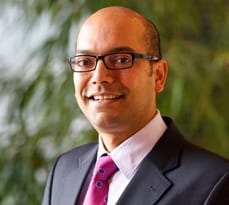Adaptability. Flexibility. Change. If the 21st century is all about disruption, what does that mean for the School?
It is more than 25 years since Cambridge Judge Business School first opened its doors to students, and how business has changed in that time. In 1991 almost no-one had heard of the World Wide Web, the closed-off Soviet Union was one of the planet’s three strongest economies, and every country in Western Europe had its own currency.
A quarter-century on, China and India are the places to trade; the long desired Euro has proved a liberation for some countries and a disaster for others; there’s a whole sub-continent of new Eastern European trading partners – and all of this, through the wonder of technology, is literally in the palm of our hand.
But what will business look like in another quarter-century? And how will business schools adapt to help the businessmen and women of tomorrow to meet those challenges? This is the thorny issue being discussed in a seminar at CJBS’s forthcoming Alumni Reunion. And all three of the School’s academics leading it believe the human race will have rather different priorities in 2041 – and that business education will reflect them.

“The world is shifting,” says Dr Jennifer Howard-Grenville, Diageo Reader in Management Studies. “Climate change, increased population, diminishing of natural resources – that means more migration, increased income inequality. Corporate organisations are becoming increasingly aware of their social and environmental responsibilities, and therefore pro-active business schools must do the same.”
Howard-Grenville is one of the three academics leading “The Future of Business Education” seminar at the forthcoming reunion, looking specifically at what business will look like in another quarter-century, and how business schools need to adapt to help the businessmen and women of tomorrow to meet those challenges.
A key theme, says Howard-Grenville, is that leaders of profit-led businesses will have to reach out to other organisations with different priorities, such as NGOs – and that will necessitate new skills. “Successful business people will hold and entertain opposing ideas – and still be able to move forward. We will need to give people the tools to manage that ambiguity. And as the wider priorities become more apparent, we will see more ‘co-opetition’ – co-operation and competition between rival organisations looking at the bigger picture to advance their industry as a whole. Schools will need to provide students with the skills to handle that.”

Dr Simon Taylor, Senior Faculty in Management Practice (Finance), believes demography is a big factor. Since 1991 the global population has increased by 39 per cent – from 5.3 billion to 7.4 billion – and is projected to hit nine billion in another 25 years’ time. “People are living longer,” he says. “There will be a lot more old and rich people in both the West and the emerging economies, with enormous spending power.
“Another aspect is the rise of the robots. It is entirely possible that management in business will include non-human interactions. Lots of jobs will be taken by robots – but will people be unemployed and poor, or rich with lots of leisure time?”
He also predicts a more equal distribution of economic power. “In areas such as Latin America, Indonesia, there is a rise of the middle class,” he says. “The global population growth will bring millions of new consumers – but will they behave like Westerners or will the prosperity be on a more local level? If the latter, business schools may not have the future we currently imagine for them and may even end up as more parochial, technical training schools.”

Jaideep Prabhu, Jawaharlal Nehru Professor of Indian Business & Enterprise, says technology will inevitably change the way courses are delivered. “We’re already seeing more frugal innovation – how new applications do more with less,” he says. “The cost of education is going up in North America, Western Europe, and other parts of the world, but with digital tools we can deliver education at people’s employment, or to students in remote areas or who simply can’t afford to travel halfway across the world to attend business school.”
That same digital revolution has brought initially unexpected threats to the business schools, he warns. “All manner of organisations are now entering the education market,” says Professor Prabhu. “Both Pearson and Google now have licences to offer degrees, and more will follow.”
But business schools such as Cambridge Judge can and will continue to thrive, he adds – as long as they are ready to adapt the ways they work. “All disruptions to a market bring opportunities and threats,” he says. “As that challenge grows, perhaps we focus more on exec education, perhaps offer more electives.
“Technology has always been supposed to be killing off universities. First it was radio, then TV, then computers – but we’re still here and leading innovation. Learning at a distance can be an isolating experience but at CJBS we work in teams, we embrace diversity and offer an interaction with people, enabling you to learn not just from tutors but the experience of fellow students. Maybe the technology that captures that experience in an online world is not too long in coming – but as real workplaces already combine virtual and face-to-face relationships, so I would expect that to continue in business education.
“The key for the School is to experiment, to try things out, explore a new pedagogy, innovative methods of engaging people. Cambridge Judge has a great track record of this and will I am sure continue to lead from the front.”
Dr Taylor agrees: “The success of CJBS has been down to its openness to debate, to challenge,” he says, “and in our Cambridge community we don’t lack knowledge to inform the debate. As long as we maintain that openness, uphold that spirit of enquiry and defence of freedom of speech, we should be at the forefront for many years to come. Our alumni epitomise all of these strengths and I’m looking forward to the reunion and hearing their thoughts on how we will pass the baton on to the next generation.”


